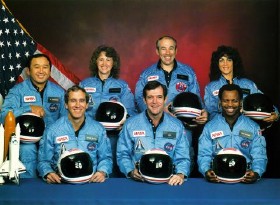| Patriots on Wednesdays 
|
 |
|
Welcome to Patriots on Wednesdays. Wednesday, January 28, 2004 |
 |
|
Here is an amalgamation of trivial facts and seemingly useless data. Do not forget to hit the hyperlinks. We have links, lots of them. 
From the Radixionary |
| ETAOIN SHRDLU |
|
A nonsense phrase; an absurd or unintelligible utterance. With the idea of speeding up the setting of type, the old Linotype keyboards had their letters arranged in decreasing order of the frequency with which they appear in the language, making the first two rows ETAOIN SHRDLU. This curious phrase is recorded both in the Oxford English Dictionary and also in the Random House Webster’s Unabridged Dictionary. Linotype operators who made a typing error would often run their fingers down the keyboard to cast nonsense to fill out the line. The resulting cast slug was usually put back in the pot to be melted down and reused, but sometimes, in the heat of composition, the mistake was missed and ended up being printed. Each half, and the complete phrase, has occasionally been borrowed to mean something that is nonsense or absurd; the first part is recorded in a story by James Thurber from 1931, and the whole thing appeared in 1942 as the title of a short story by Fredric Brown about a sentient Linotype machine. Jake Loddington told about The Naughty Princess by Anthony Armstrong, written in 1945, in which there is a whimsical short story called Etaoin and Shrdlu which ends “And Sir Etaoin and Shrdlu married and lived so happily ever after that whenever you come across Etaoin’s name even today it’s generally followed by Shrdlu’s”. Andrew Stiller mentioned a once-famous play, The Adding Machine, in which Etaoin Shrdlu was a character. The second half of the phrase was used in 1972 by Terry Winograd as the name for an early artificial-intelligence system. With computerized typesetting the machines have gone and the associations are almost lost, but the phrase remains a useful mnemonic for the most-used letters in English. |
|
 |
Happy Birthday
|
 |
|
Would you like some Cheerleaders for your Patriots? 
|
 |
The Stamp Act was passed by the British Parliament on March 22, 1765. The new tax was imposed on all American colonists and required them to pay a tax on every piece of printed paper they used. Ship's papers, legal documents, licenses, newspapers, other publications, and even playing cards were taxed. -- History.org

|
 |
|

|
 |
|
The Battle of Bunker Hill On June 17, 1775, American troops displayed their mettle in the Battle of Bunker Hill during the siege of Boston, inflicting casualties on nearly half of the British troops dispatched to secure Breed's Hill (the actual site of the battle). 
|
 |
| Happy Birthday William Seward Burroughs 1857 In 1888, the American William Seward Burroughs patented the first printing calculator. It was, in fact, an adding machine. Multiplication was carried out as repeated addition. The Burroughs and its competitors used a 'full keyboard' with separate key rows for units, tens, &c. up to 999,999.99. 
|
 |
| My Hat My hat it has three corners,
Three corners has my hat,
And if it didn't have three corners,
It wouldn't be a hat! |
 |
| Happy Birthday Artur Rubinstein 1889 
|
 |
|
Happy Birthday Jackson Pollock 1912 
|
|

|
|
Happy Birthday Acker Bilk 1927 
|
 |
The classical Prisoner's Dilemma is as follows:
-
Two suspects are arrested by the police. The police have insufficient evidence for a conviction, and having separated them, visit each of them and offer the same deal: If you confess and your accomplice remains silent, he gets the full 10-year sentence and you go free. If you both stay silent, all we can do is give you both 6 months for a minor charge. If you both confess, you each get 5 years.
-
Each prisoner individually reasons like this: Either my accomplice confessed or he did not. If he did, and I remain silent, I get 10 years, while if I confess I only get 5. If he remained silent, then by confessing I go free, while by remaining silent I get 6 months. In either case, it is better for me if I confess. Since each of them reasons the same way, both confess, and get 5 years. But although each followed what seemed to be rational argument to achieve the best result, if they had instead both remained silent, they would only have served 6 months.
This illustrates that if the two had been able to communicate and cooperate, they would have been able to achieve a result better than what each could achieve alone. There are many situations in the social sciences that have this same property, so understanding these situations and how to resolve them is important. In particular, it demonstrates that there are situations where naïve reasoning in one's own best interest does not always lead to a best result. In political science, the Prisoner's Dilemma is often used to illustrate the problem of two states getting into an arms race. Both will reason that they have two options, either to increase military expenditure or to make an agreement to reduce weapons. Neither state can be certain that the other one will keep to such an agreement; therefore, they both incline towards military expansion. The irony is that both states seem to act rationally, but the result is completely irrational. |
 |
| Would you like some more Cheerleaders for your Patriots? 
|
|

|
|
Happy Birthday Susan Sontag 1933 
|
|

|
| Happy Birthday Nicholas Pryor 1935 
|
|

|
| Happy Birthday Alan Alda 1936 
|
 |
Happy Birthday Marthe Keller 1945 Are you taking any prescription medications? 
|
|

|
|
Barbi Benton 1950 
|
 |
|
Would you like some more Cheerleaders for your Patriots? 
|
 |
|
Happy Birthday
Sara McLachlan 1968 
|
|

|
|
Happy Birthday Elijah Wood 1981 
|
 |
|
Another Patriot Cheerleader  Jeri Colbert Jeri Colbert
Height: 5-4
Birthplace/Date: 27 Feb 78 Durham NC
School: United States Military Academy at West Point
Major: BS in Systems Engineering/American Politics
Years with Team: R
|
 |
|
One of the pivotal events that helped bring about the American Revolution took place on March 5, 1770. This event was the Boston Massacre. The patriots would use this incident to further their cause of fighting against British tyranny. 
|
|

|
 |
|

|
|
Velocity & Energy
We are shredding cards.
|
|

|
 |
|

|
|
Kinetic Temperature... The expression for gas pressure developed from kinetic theory relates pressure and volume to the average molecular kinetic energy. Comparison with the ideal gas law leads to an expression for temperature sometimes referred to as the kinetic temperature. 
|
 |
|
Difference Between Republicans and Democrats A Republican and a Democrat were walking down the street when they came to a homeless person. The Republican gave the homeless person his business card and told him to come to his business for a job. He then took twenty dollars out of his pocket and gave it to the homeless person.
The Democrat was very impressed, and when they came to another homeless person, he decided to help. He walked over to the homeless person and gave him directions to the welfare office. He then reached into the Republican's pocket and gave the homeless person fifty dollars.
Now you understand the difference between Republicans and Democrats
|
 |
| Would you like some more Cheerleaders for your Patriots? 
|
 |
Best headlines of 2002
Something went wrong in jet crash, expert says
Police begin campaign to run down jaywalkers
Iraqi head seeks arms
Panda mating fails; veterinarian takes over
Teacher strikes idle kids
Miners refuse to work after death
Juvenile court to try shooting defendant
War dims hope for peace
If strike isn’t settled quickly, it may last awhile
Cold wave linked to temperatures
Red tape holds up new bridges
Man struck by lightning faces battery charge
New study of obesity looks for larger test group
Kids make nutritious snacks
Chef throws his heart into helping feed needy
Hospitals are sued by 7 foot doctors
Meteorologist blames constant inaccuracies on weather |
 |
 |
 |
|
Today's Wednesday field trip takes us to Gillette Stadium.... 
|
 |
|
Would you like to run a Pool for the SuperBowl?
-
Get a paper, pen and a deck of cards.
- Make a 10 by 10 grid on the paper, so you have a square block of 100 cells.
- Write the name of the visiting team across the top of your grid and the home team along the side of your grid.
- Assign a dollar value to each cells which is suited to the tastes of your guests. (hint: do not price yourself out - you'll want to sell all 100 squares.)
- Sell all 100 squares. This is the hard part.
- Once you've sold all 100 squares to your guests, count up the total prize pool, (purse) and assign the following prizes; 15% of total purse for correct 1st quarter score, 25% of total purse for correct 1/2 time score, 20% of total purse for correct 3rd quarter score, 40% of total purse for correct final score.
- From your deck of cards, set aside one set of numbers ace (1) through 10.
- Shuffle your ten cards and then flip them over in order, recording the numeric value along the top of your grid, with ace having a value of 1 and 10 having a value of 0. Repeat this procedure along the side of your grid as well.
- Your 10 by 10 grid should now have a number representing each column along the top and each row along the side and should have one of your guests names accompanying each of the 100 cells contained in the grid.
- Record the official score at the end of the 1st quarter, the half, the third quarter and the final score.
- Cross reference the last number in each teams score as it relates on your grid to determine which of your guests wins each quarter pot.
|
 |
|
On this day: 1521 - The Diet of Worms began, at which Protestant reformer Luther was declared an outlaw by the Roman Catholic church 
|
 |
 |
 |
|
On this day 1871 - France surrendered in the Franco-Prussian War.
or Franco-German War, 1870–71, conflict between France and Prussia that signaled the rise of German military power and imperialism. It was provoked by Otto von Bismarck (the Prussian chancellor) as part of his plan to create a unified German Empire. |
|
|
 |
|
On this day 1878 - The first telephone switchboard was installed in New Haven, CT. 
|
 |
|
1915 - The Coast Guard was created by an act of the U.S. Congress. Established: In the Treasury Department by act of January 28, 1915 (38 Stat. 800), merging the Revenue Cutter Service and the Life Saving Service. 
|
 |
|
1960 - The first photograph bounced off of the moon. 
|
 |
|
1986 - The U.S. space shuttle Challenger exploded just after takeoff. All seven of its crewmembers were killed. 
|
 |
|
Despite the near universality of this image as synonymous with Americanism and its instantaneous recognition in the iconography of the Revolution, the world of art has never considered it to be Art with a capital "A". As a result, you'll search in vain in your local library for an art history book that mentions the work or the artist. What we do know about Archibald McNeal Willard (1836-1918) is that he was an Ohio boy and a carriage painter by trade. He moved to New York City to study art in 1873. He first painted this work for the Philadelphia Centennial Exposition of 1876. Almost immediately, it was dismissed by art critics as little more than a cartoon. However, it seized the public imagination with the kind of fervent adulation we see exhibited for todays' rock stars. After the Exposition, it went on tour from Boston to San Francisco, and was admired by sell-out crowds wherever it was shown. 
|
 |
 |
 |
| Patriots Wednesdays |
| Definitely |
| |







